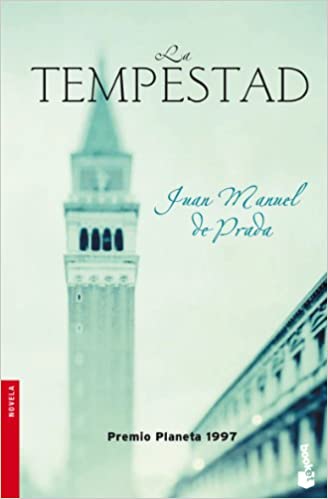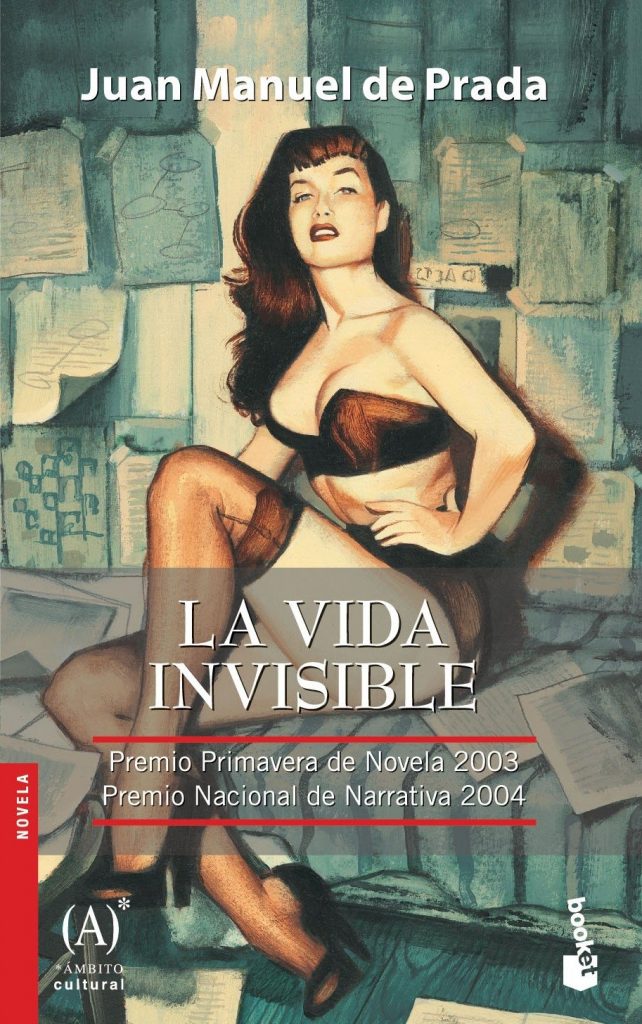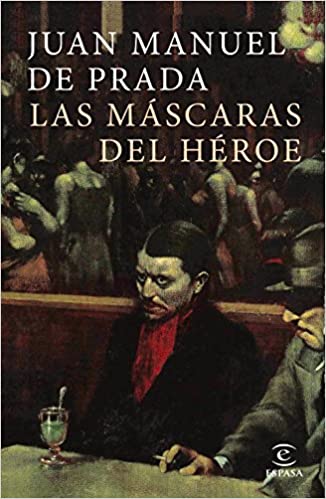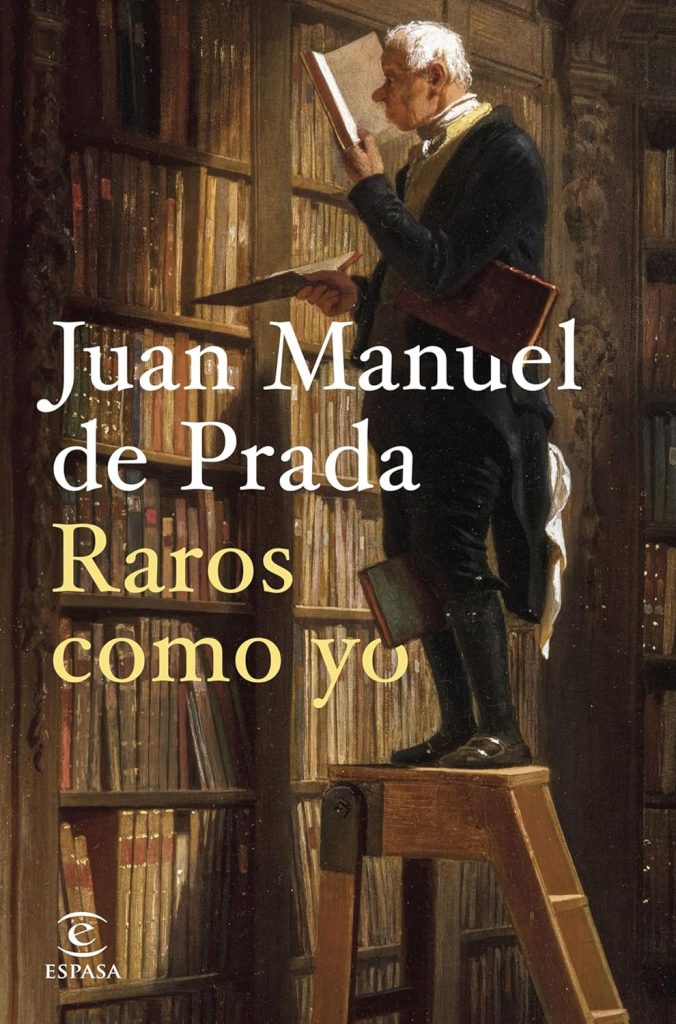When an author breaks out with his first book under the title Coños, one can already guess that the controversial intention and self-confidence were closely related. linked to the budding writer. And the book ended up being that, a liberating exercise for a twenty-something who exploits his narrative capacity from an essay with a lyrical aroma, rich poetic prose and that tackles classic taboos on women, sex, history and pussies with humor and insolence. .
Today Juan Manuel de Prada he is already a prestigious writer. And far beyond his manifest spirit of controversy (always with a well-founded critical thinking that he also handles as a renowned essayist), which can lead us to easy labeling, in each new book the great writer who dominates language, resources and narrative tempo bursts in. .
It never hurts to read without prejudice to find the creator. We can be more or less in tune with a writer who is very given to public appearances, newspaper columns and social gatherings. But literature is something else, it must be something else. And Juan Manuel de Prada is an heir to Threshold highly recommended.
And so, without prejudice, we can find great novels by a writer who manifested himself early and who already includes a fortnight of books and several prestigious literary awards.
Top 3 recommended novels by Juan Manuel de Prada
The Tempest
Shortly after that singular literary irruption that was Coños, Juan Manuel de Prada won the 1997 Planeta award at only 26 years old.
The Tempest tells us about that discovery of the innermost part of being, of the personality composed of drives, emotions, the discovery of beauty and the artistic as the only thing capable of showing you the truth beyond reason and senses at your service.
It is not that it is an existentialist novel, in reality the plot is sustained by an intense dynamism about the particular experiences of Alejandro Ballesteros, an art teacher, in a melancholic and enigmatic Venice in which he will live the adventure of his life.
He "only" sought to study the painting "The Tempest" by Giorgione. But it is the very language used by the author that elevates the story to that existential point where death, love and passion end up composing a literary watercolor to be enjoyed in linguistic contemplation.
Invisible life
I don't know how my own sister came to the conclusion that this novel reminded her at times of my writing. The point is that abysmal comparisons aside, one good day he gave it to me.
It will be because the story starts from the experiences of a humble writer, Alejandro Losada, who knows of the disappearance of one of those faces that end up invading everything as a publicity claim, a face, a pin-up named Fanny Riffel that remains in the imagination of many people back in the 50's and whose invisible life evaporates into the everyday life of a city like Chicago, given over to other routine tasks.
Only on that trip to Chicago a few days before his wedding, Alejandro himself ended up generating his own invisible life, that of Elena, whom he covered with love and understanding in one of those fleeting placebo therapies. I may never get to know anything about Fanny. But perhaps Elena decides to make herself visible to upset everything ...
The hero's masks
Not long ago I visited the Gijón café in Madrid for the first time. Sitting at one of those tables, with the correct aesthetic conservation of lighting and furniture, one can imagine so many bohemian creators who, among the delusions of wine, believed themselves capable of writing the best novel of the XNUMXth century, if not they had already.
This novel speaks a little of that spirit with the aroma of stale wine and ideals mired in defeatism and the pride of the creator. A multitude of characters make up this walk through the Madrid of the old empire already in tatters.
A time and a place in which the idealists and the chroniclers of his time shared fatalism, nihilism, cainism and the perennial Spanish picaresque. A narrative that in the hands of the author ends up transmitting melancholy and the motive that can most inspire a writer: defeatism.
Other recommended books by Juan Manuel de Prada
weird like me
More than ever, considering yourself strange today is a proclamation of absolute freedom. Because normality has become mediocrity, simplicity and what is worse, polarization without the possibility of amendment to what was always the virtue, the center. The geeks, the weird ones, are today in the center, observing the world's rally like two tennis players embroiled in the most absurd victory. To be strange, as Juan Manuel de Prada says, is to be free, virtuous and aware of reality.
Juan Manuel de Prada introduces us to his strange friends, the spoilsports of correction, the anomalies of this planet increasingly tending towards flatness...
In this book we present a passionate and exciting gallery of rare or cursed writers, from misunderstood geniuses tragically expelled to darkness – there we have the paradigmatic case of Léon Bloy – to completely irrelevant writers, sometimes even crazy and almost pre-literate tarambans, who However, they hide, between the folds of a shabby life and a negligible work, that "powerful and strange soul" that shocks the dominant sensibility.
For Juan Manuel de Prada, cursed is the writer who rebels against the ideological and aesthetic conventions prevailing in his time; and thus he can go so far as to affirm that “cursed today is not the author who takes pleasure in invoking demons, but rather he who dares to pray to the saints; cursed is not the activist of debauchery, but the apostle of temperance; cursed is not the shrill rhapsode of freedom, but the discreet minstrel of tradition.
Among the damned gathered in Raros como yo we find writers who were applauded in life and later fell into oblivion, like Concha Espina; others despised in life who have later been rescued, like Felisberto Hernández; and we also find those who were cursed in life and continue to be so today, confined in the dungeons where the out-of-tune voices of the official choir are locked up. Among the latter, the Argentine Leonardo Castellani stands out, whom Prada Rubenianly calls "father and magical teacher who radically changed my perception of the literary profession" and dedicates very deep and revealing pages. He closes the volume with a balcony offered to the "roses of Catalonia", a handful of writers – almost all of them from the same generation – that the author discovered fascinated while studying Catalan literature of the Silver Age.




